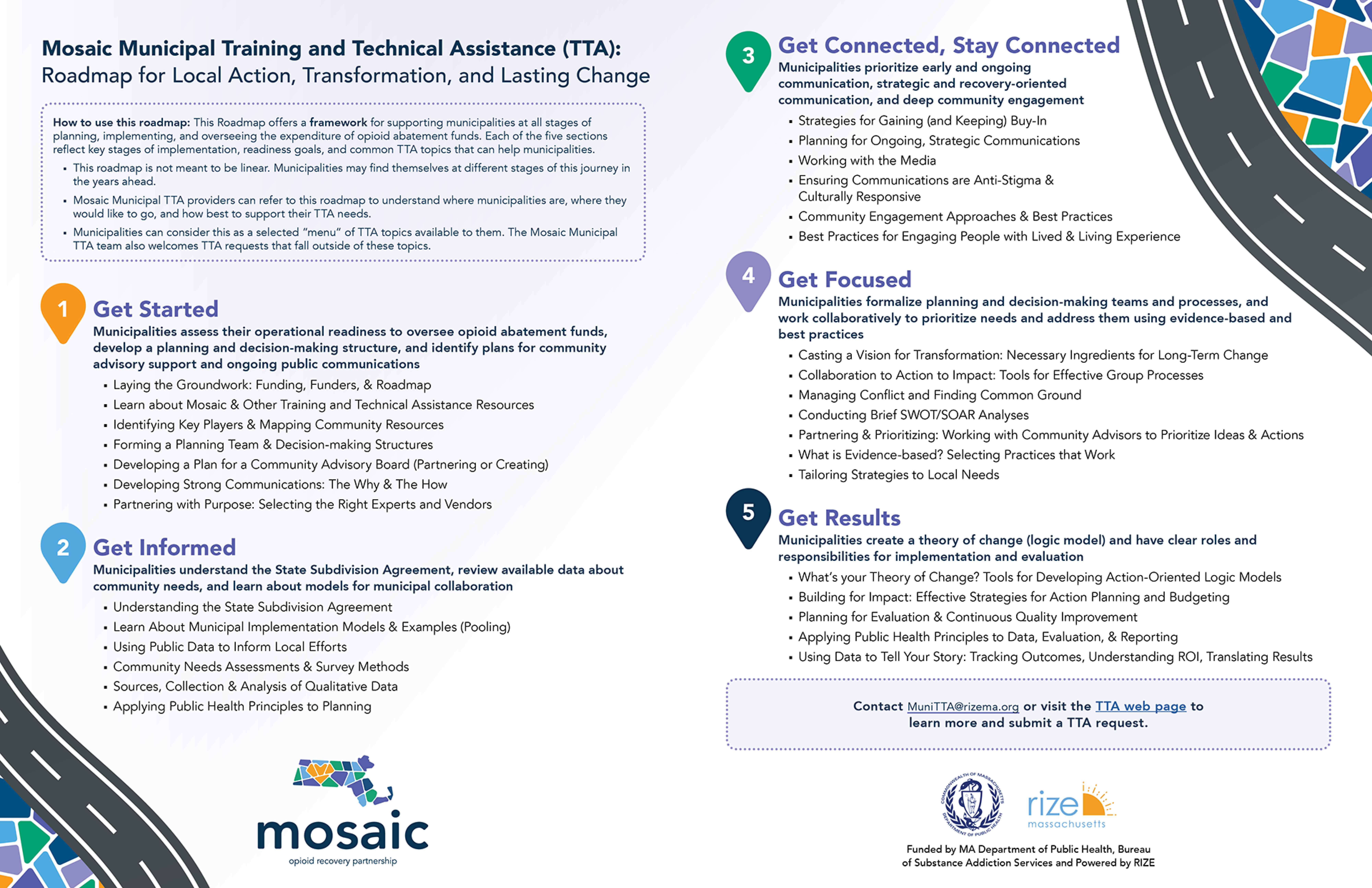Municipal Training & Technical Assistance Approach
Mosaic’s Municipal Training and Technical Assistance (TTA) Program uses a hub-and-spoke model designed to provide individualized, responsive support grounded in local knowledge. RIZE, the “hub,” provides a consistent framework, tools, training, and resources that municipalities can use to manage and maximize their opioid abatement funds. This shared foundation ensures that every municipality, regardless of size or capacity, has access to clear guidance and practical support. At the same time, each region has a dedicated regional coordinator, the “spoke,” who works directly with municipalities and understands the unique circumstances, challenges, and priorities of the communities they serve.
The regional coordinators have deep roots in their local areas. They offer one-on-one assistance, support collaboration across municipalities, and help local leaders navigate complex decisions. Each region will convene a community advisory board made up of people with lived and living experience and other local stakeholders, ensuring the work reflects community needs and values. The model is built on collaboration, trust, and respect for each municipality’s distinct needs. The goal is to ensure that local leaders feel supported as they put their opioid abatement funds to work in ways that strengthen their communities.
Meet the Regional Coordinators
- Central: Ethan Melad, Central Mass Regional Planning Commission
- Greater Boston: Jennifer Tracey, Chief Program Officer, RIZE Massachusetts Foundation
- Metro West: Ethan Melad, Central Mass Regional Planning Commission
- Northeast: Haleigh Schultz, BME Strategies
- Southeast: Allyson Gittens Dias, BME Strategies
- Western: Liz Whynott, Senior Program Officer, RIZE Massachusetts Foundation



